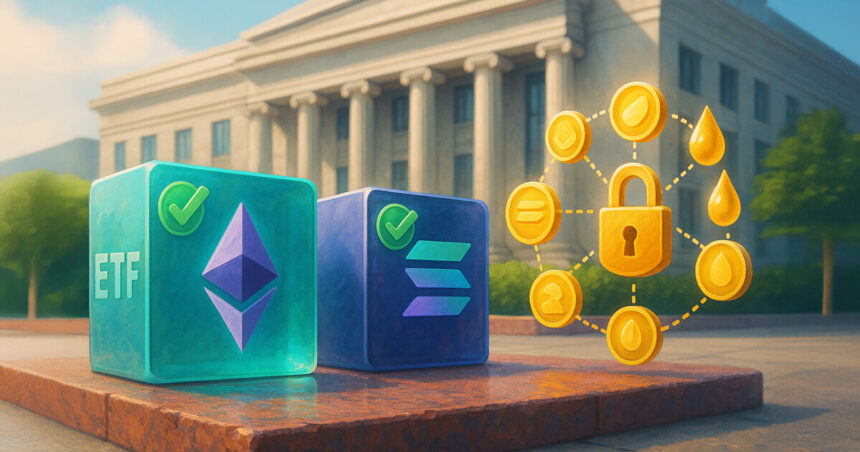Two of the largest digital asset managers, Bitwise and 21Shares, have made notable updates to their Ethereum and Solana ETF filings, potentially changing the way crypto exchange-traded products operate in the United States.
According to amended S-1 statements filed with the U.S. Securities and Exchange Commission (SEC), both issuers are currently addressing the possibility of holding Ethereum and Solana holdings within their funds.
If the changes are approved, these ETFs will be able to earn staking rewards, the income earned by helping to verify transactions on the proof-of-stake blockchain. Until now, U.S.-listed crypto ETFs have been unable to participate in network consensus and have been limited to passively owning the underlying assets.
The amended application, filed this week, comes after months of quiet lobbying by ETF issuers seeking clarity on regulations around staking income. Although the inclusion of this language does not mean the SEC has approved this feature, it does indicate that the SEC is at least considering the idea.
Analysts see this as an early sign that the SEC’s stance on staking may be softening, especially given the growing pressure to allow ETFs to compete with on-chain yield opportunities available to retail and institutional investors overseas.
Impact of staking within an ETF on ETH and SOL yields
For Ethereum, current staking rewards range from 3% to 4%, while Solana rewards typically range between 7% and 8% annually. ETF management fees for these funds are typically around 0.20% to 0.30%, meaning the yield can cover or exceed the fund’s fees if staking proceeds are distributed to holders.
Such changes could change the way ETF issuers compete in the market. Rather than focusing solely on management costs and liquidity, future funds may also compete on net yield, creating a new performance metric for investors comparing crypto ETFs.
Although the SEC has not yet commented on these proposed amendments, the filing suggests that staking may soon move from the on-chain economy to traditional financial products, bridging the gap between DeFi incentives and regulated investment vehicles.






